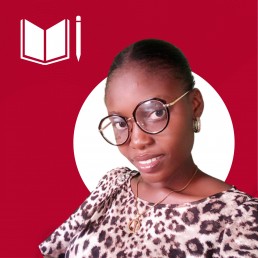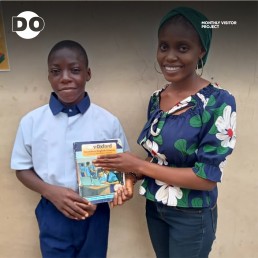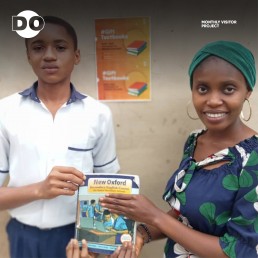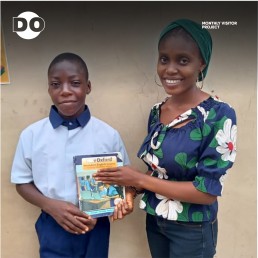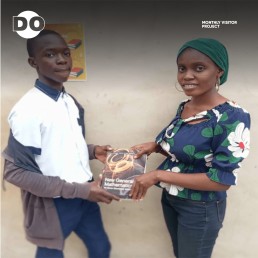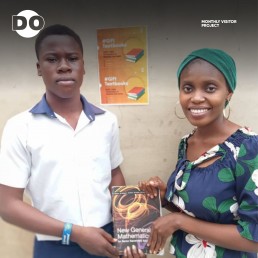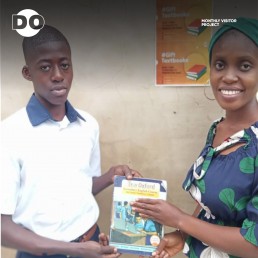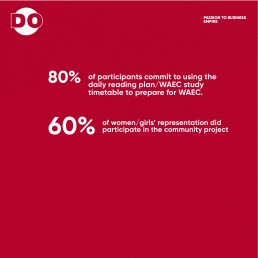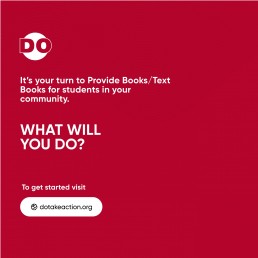THE NEED
When was the last time you picked up a novel, self-development, textbook, and read it from start to finish?
Back in the days, there was a saying, “Wanna Hide Something From a N*gga, Put It In a Book, they’ll never read it.” Sad to say, the narrative has not changed much. Most kids would rather spend hours seeing movies (seasons after seasons), playing games and goofing on the internet than spend one hour reading.
Interestingly, some parents are not helping matters; they subscribe to DSTV or GOTV, get them iPhones and allow them unhindered access to the internet. Recent studies show approximately 43 million social network users in Nigeria, and this figure is projected to grow to 103 million users in 2026; the majority of the users are youths. It is safe to say that many young people have more Instagram likes than their IQ.
In an age where information is a fingertip away, it is depressing to find people, especially youths, wasting away in online space rather than investing their time in getting knowledge. Knowledge is one of the building blocks of a civilised society. A nation with a low reading culture is doomed to have a leadership problem due to a shortage of knowledgeable leaders; Nigeria’s tragic political and socio-economic woes are no wonder.
The deplorable reading culture in Nigeria, particularly among schoolchildren and students, has reached frightening heights. According to the World Culture Score Index, Nigeria has one of the lowest reading cultures in the world. Nigeria has the greatest number of children who have dropped out of school among the 20 million children globally in 2017 (International Journal of Technology and Inclusive Education).
It is heartbreaking to watch secondary school children who can’t read simple phrases or string two sentences together without committing a grammatical blunder. It is even sadder that some students in universities, polytechnics, and institutions of education are unable to read fluently. How can they understand what they are being taught?
Against this backdrop, Ado Damilola Kaosarat decided to step up and proffer a solution. Ado Damilola Kaosarat is a 26-year-old Mass Communication graduate of National Open University based in Oyo state. Though self-employed, she enjoys catering for the welfare of people and being a source of encouragement to those in her sphere of influence.
After careful study and research, it was discovered that the causes of poor reading culture in Nigeria include a flawed education system, lack of well-equipped or functional libraries in schools and low patronage of school libraries, among others. Kaosarat learned that if she could empower students with textbooks and study materials, especially those in examination classes, it would go a long way to help those students develop a reading habit, and by extension, help them perform well in their examinations.
Kaosarat launched a Gift Books and TextBook project under DO-Take Action in schools, where she empowered underprivileged students with textbooks to encourage them to cultivate a good reading habit.
The project was conducted at Ibadan South West Local Government, Oke-Ado Area. It entailed the following;
- A presentation on Purpose in Life, How to Set Short and Long Term Goals
- A presentation on Career and The Importance of Choosing the Right Career Path
- A presentation on Life After School to prepare the students ahead of the realities of life they will encounter right after graduating from school
- Drafting of a suitable WAEC timetable to help the students assiduously prepare for their examination
- Distribution of gift books and textbooks to underprivileged students who don’t have the money to buy textbooks
In the course of the project, a minimum of 14 students were informed of the need to have a reading habit and prepare diligently for their examinations, especially for Senior WAEC. The students took the Improved Access to Quality Primary Education knowledge test and learned how to draw a daily reading place/study timetable.
Kaosarat believes that if students can stick to their study plan, they can share a success story like hers. What change are you engineering?
If you enjoyed the story and would like to read more stories like this, sign up for our monthly newsletter to get notified of new stories.
Also, do well to follow our social media handles for more engaging and entertaining content on issues that affect YOU.
